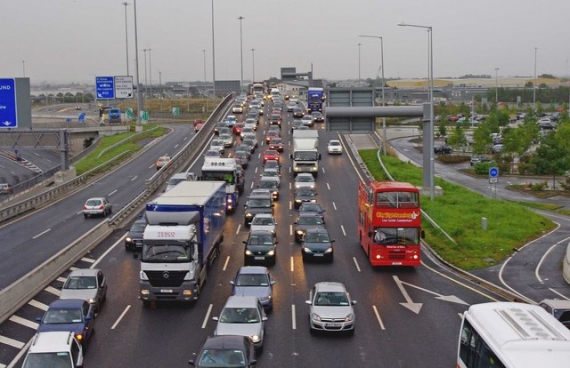
Ireland's gross domestic product grew 2.4% in the first quarter of 2019, growth for last year was revised up to 8.2%, and the finance minister said the momentum had continued through the second quarter.
Irish GDP has outperformed the rest of the European Union every year since 2014, undeterred by Britain's decision to quit the EU, which the government says could lead to a sudden contraction if Ireland's nearest neighbor leaves without a transition agreement.
While Irish GDP growth has been distorted in recent years by the impact the presence of so many large multinational firms has on the national accounts, Thursday's strong figures demonstrated the "coping capacity" the economy had built up for risks such as Brexit, KBCIreland chief economist Austin Hughes said.
The debt office sold 600 million euros of 10-year bonds at a record low yield of 0.136% on Thursday.
The GDP data, which showed output in the first quarter was 6.3% higher than the same period a year ago, tallied with strong jobs numbers for the first three months. The labor market, already close to capacity with unemployment below 5%, added new workers at the fastest pace since Ireland's economic recovery began.
Many economists use the labor market as the most accurate barometer of how Ireland's open economy is doing. The relevance of GDP diminished when 2015 growth surpassed 26 percent due to adjustments that massively revised the stock of capital assets.
Such distortions inflated GDP again for the last two years. Personal consumption of goods and services, a clearer indicator of activity in the domestic economy, grew by 3.4% in 2018, the Central Statistics Office (CSO) said.
The CSO has also begun phasing in new measures which strip out some globalized activities.
When put against one such measure - modified gross national income or GNI*, which excludes the effects of foreign firms re-domiciling, relocating or depreciating their capital assets - the country's debt burden was still higher than its underlying national income at a ratio of 104%.
Finance Minister Paschal Donohoe pointed to that figure, the "continued softness in the international environment" and Brexit for repeating the need for careful management of the economy.
"The negative impact of mounting global trade tensions, whilst not targeted at Ireland directly, will inevitably wash up on our shores," Gerard Brady, chief economist at Ireland's main business lobby, Ibec, wrote in a note.
"How long these tensions last, and their ongoing reverberations will have a big say in the future of open economies such as ours." (Reuters)
Source: www.businessworld.ie
















